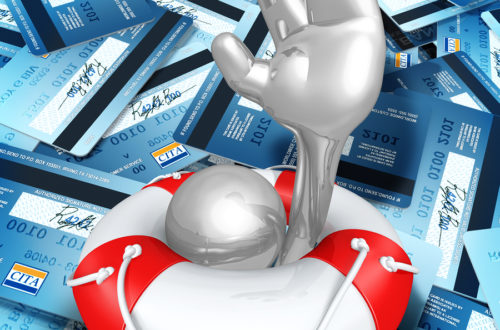On occasion, a Chapter 13 bankruptcy case may need to be converted to a Chapter 7 case. This transition may be on the request of the individual filer or the bankruptcy court. Many bankruptcy filers will decide to convert their Chapter 13 case into a Chapter 7 case in the event their financial situations have changed after the initial filing, or if the filer had originally chosen to pursue a Chapter 13 case to protect property that no longer needs protection.
The Conversion Process
Florida bankruptcy courts have specific guidelines that must be followed for converting a case from Chapter 13 to Chapter 7. Unless the filer has already received a Chapter 7 bankruptcy discharge within the most recent eight years, he or she should be able to convert a Chapter 13 case into a Chapter 7 at any time.
The first step is to file a Notice of Conversion with the bankruptcy court and pay the required conversion fee. If the court approves the conversion, the bankruptcy petition and forms filed in the Chapter 13 case will become part of the new Chapter 7 case. The filer will likely need to update his or her income and expenses under the Chapter 7 case, which will be done via new financial declaration form.
With respect to bankruptcy exemptions on qualifying property, the bankruptcy court will determine these exemptions as of the date of the Chapter 13 filing. Any Proofs of Claims filed by creditors in the Chapter 13 case will also transfer to the new Chapter 7 case. If creditors’ meeting was already held in the Chapter 13 case, the filer will need to attend another meeting of the creditors in the Chapter 7 case.
Why File for Chapter 7 Bankruptcy
Both types of bankruptcy have their own set of positive and negative aspects, but many find Chapter 7 more appealing because it takes significantly less time to complete, and it is a straight elimination of debt. A Chapter 13 bankruptcy is a structured repayment plan and can take anywhere from three to five years to complete, while a Chapter 7 bankruptcy case can be finished in a few months. The process is simplified, and if the filer’s property is otherwise protected under bankruptcy exemptions, it can be a much easier way to discharge unsecured or consumer debts.
Passing the Means Test
Several reasons exist behind why someone may choose to file for Chapter 13 bankruptcy. One of them being the filer’s income is too high to qualify for Chapter 7. Before someone in Florida can file for Chapter 7 bankruptcy, he or she will need to pass the means test, which examines the filer’s income and expenses to see if he or she has the “means” to otherwise repay his or her debts through a Chapter 13 repayment plan. If the filer’s income or expenses have substantially changed since filing for Chapter 13 such that he or she would fall within the means test guidelines, a conversion may be necessary.
Qualifying for Discharge
Just because someone passes the means test does not mean that he or she would be entitled to a discharge of his or her debts. The biggest hurdle preventing a bankruptcy discharge would be if the filer had received a Chapter 7 bankruptcy discharge within the most receive eight years, making that person not eligible to receive another one until that much time has passed. Other methods may be used to sell the nonexempt property and pay off qualifying debts, thus reducing the amount owed.
Court Intervention
Certain circumstances may arise where the bankruptcy court can order the case be converted to Chapter 7 for cause shown. If the filer is following the rules and repayment plan under the Chapter 13 case, it is unlikely the court would change the plan on that person. However, if the court believes that the filer is acting in bad faith or is taking advantage of the system by manipulating it in some way to avoid paying properly on his or her debts, the court may order the conversion. One example of this is a person who files for bankruptcy to stop a foreclosure sale but has absolutely no intent on working with the creditor to put together a viable repayment plan for the debt.
Are you struggling to keep up with your Chapter 13 payments? If you have recently lost your job or become ill, Chapter 13 Bankruptcy may no longer be the right option for you. You have the right to convert a Chapter 13 bankruptcy to a Chapter 7 bankruptcy at any time if you become eligible. Many of our clients are surprised to discover they never have to go to court or see a judge in order to convert their Chapter 13 filings to Chapter 7.
If you have questions on this topic or are in financial crisis and considering filing for bankruptcy, contact an experienced Miami bankruptcy attorney who can advise you of all of your options. As an experienced CPA as well as a proven bankruptcy lawyer, Timothy Kingcade knows how to help clients take full advantage of the bankruptcy laws to protect their assets and get successful results. Since 1996 Kingcade Garcia McMaken has been helping people from all walks of life build a better tomorrow. Our attorneys’ help thousands of people every year take advantage of their rights under bankruptcy protection to restart, rebuild and recover. The day you hire our firm, we will contact your creditors to stop the harassment. You can also find useful consumer information on the Kingcade Garcia McMaken website at www.miamibankruptcy.com.
Sources:
https://www.alllaw.com/articles/nolo/bankruptcy/converting-case-from-chapter-13-chapter-7.html
https://www.flsb.uscourts.gov/local-rule/conversion-and-reconversion-–-procedure-following

